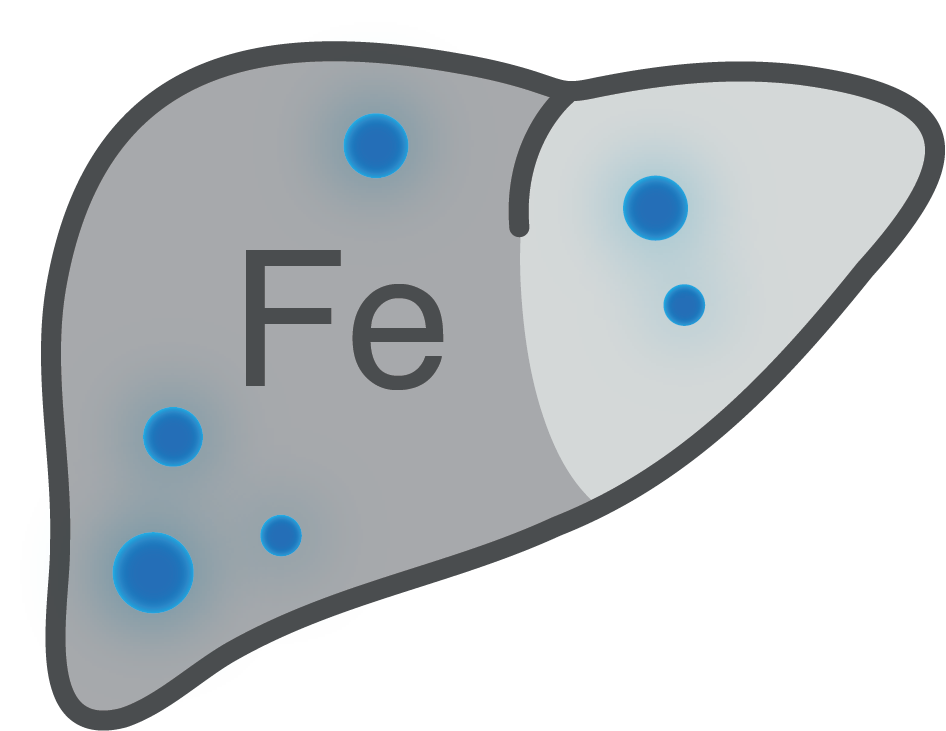Hemochromatosis
Conditions

Hemochromatosis, sometimes called “iron overload,” is a condition where the body absorbs and stores too much iron. Over time, excess iron builds up in organs such as the liver, heart, and pancreas. If untreated, it can lead to serious complications, including liver disease, diabetes, heart problems, and joint pain.
Excessive iron intake
While rare, consistently taking in too much iron through supplements or diet can contribute to iron overload.
Alcohol abuse
Heavy alcohol use can damage the liver and worsen the effects of iron buildup, increasing the risk of cirrhosis and liver cancer in people with hemochromatosis.
Hepatitis C
Chronic hepatitis C infection can cause liver inflammation and scarring, making the effects of excess iron more severe and further raising the risk of cirrhosis.
Hemochromatosis often develops gradually, and symptoms may not appear until middle age. Common signs include
- Fatigue or weakness
- Joint pain or stiffness
- Abdominal pain
- Loss of sex drive or erectile dysfunction
- Darkening of the skin (“bronzing”)
- Enlarged liver or spleen
If left untreated, complications such as diabetes, cirrhosis, irregular heart rhythms, and heart failure can develop.
Medications and chelation therapy
In some cases, medications may be prescribed to bind excess iron and help the body remove it through urine or stool. This is called chelation therapy and is often used when blood removal is not possible.
Phlebotomy
The most common treatment is therapeutic phlebotomy, a process similar to donating blood. Regularly removing blood lowers iron levels and prevents buildup in vital organs.
Lifestyle & dietary changes
Patients are often advised to make adjustments to improve nutrition, including:
- Avoid iron supplements and multivitamins with iron
- Limit alcohol intake
- Reduce consumption of red meat and high-iron foods
- Avoid raw shellfish, which can pose additional risks for people with iron overload
At NYGA, our gastroenterologists provide advanced care for diagnosing and managing hemochromatosis. From specialized blood testing to personalized treatment plans, we work closely with patients to control iron levels and protect long-term health. If you are experiencing symptoms of iron overload or have a family history of hemochromatosis, schedule a consultation with an NYGA gastroenterologist today.
